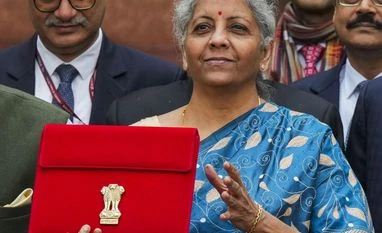In a relief to taxpayers grappling with outstanding tax demands, Finance Minister Nirmala Sitharaman on Thursday announced a resolution scheme for “disputed direct tax demand” dating back to even 1962.
The government has decided to waive outstanding direct tax demands up to Rs 25,000 for the period up to financial year 2009-10 and up to Rs 10,000 for financial years 2010-11 to 2014-15.
"There are a large number of petty, non-verified, non-reconciled or disputed direct tax demands many of them dating back as far back as 1962, causing anxiety to honest taxpayers and hindering refunds
In line with our vision to improve ease of living and ease of doing business, I propose to withdraw such outstanding direct tax demands up to Rs. 25,000 pertaining to the period up to financial year 2009-10 and up to Rs. 10,000 for financial years 2010-11 to 2014-15," said Sitharaman during her budget speech.
This is expected to benefit about 10 million taxpayers.
This is expected to benefit about 10 million taxpayers.
The outstanding tax demands were creating a hurdle in the issuance of refunds to taxpayers as the income tax department was not processing complete refunds for the ongoing assessment year if the taxpayers had pending demands from previous years. The dispute resolution scheme is expected to resolve this issue now.
More From This Section
"On dispute resolution, the Interim Budget proposes to withdraw the outstanding direct tax demands up to INR 25,000 for period up to FY 2010 and up to INR 10,000 for FY 2010-11 to FY 2014-15. FM indicated that this is likely to benefit about 10 million taxpayers. This is a small relief against higher expectations to alleviate concerns on significant backlog of tax dispute resolution," said Lokesh Shah, Partner, IndusLaw.
"Write off of old demand (pre2010) up to Rs 25,000 will save a lot of court time and money," said Rohinton Sidhwa, Partner, Deloitte India.
The finance minister did not announce any changes in the tax rates during her budget speech. However, certain tax benefits available to start-ups and investments made by sovereign wealth or pension funds expiring on 31st March 2024 have been extended to 31 March 2025. Similarly, exemption on certain income of some IFSC units has also been extended from 31st March 2024 to 31st March 2025.
)